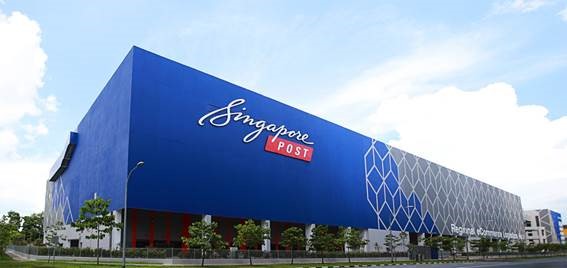
What next for Dutch TPG?
What next for TPG, the Dutch mail, parcels and logistics giant, now that industry fixture Alan Jones has quit as managing director of the TNT Express division?
Although the surprise announcement in December spoke of an 'amicable' agreement, it is an open secret that the root cause of Mr Jones' departure, after 23 years with TNT, was a difference of opinion over future strategy.
Industry insiders suggest that straight-talking Mr Jones wanted to keep the express parcel and logistics businesses as two distinct entities.
Opposite him was Peter Bakker, chief executive of parent group TPG, who wan-ted closer and seamless co-operation between the two.
Mr Bakker, it is suggested, wants TPG to follow the template of German-owned DHL, which is busy re-engineering to present a one-stop shop for every type of logistics service from sea freight containers to business post.
Mr Jones, a parcels man to the bones, argues that separation provides greater transparency and a tighter grip on costs.
Another theory is that the parcels division is being streamlined for acquisition and that Mr Jones did not agree with some or all of the strategy.
As a group TPG employs more than 161,000 people in 62 countries and reported sales of e 11.7bn ($13.4bn) for 2002. It is a bad fourth in turnover terms behind global integrators DHL, owned by Deutsche Post, and US giants UPS and FedEx.
The pre-Christmas timing of the TPG announcement, coincidentally on the same day that an ex-DHL executive joined P'O Nedlloyd, meant that it produced the minimum of ripples.
Another surprise was the name of Mr Jones' replacement. Marie-Christine Lombard will head the Express division as group managing director.
Mrs Lombard was previously managing director of the TNT Express business unit in France.
Her promotion catapults her over the heads of long-serving executives who have been in the wake of Mr Jones as he progressed up the management pole.
But industry observers indicate that Ms Lombard has the Alan Jones seal of approval and is known for her similar focus on the business basics.
Indeed, Mrs Lombard was included in the circulation list of a 'swansong' letter from Mr Jones to senior TPG executives a week before his departure.
In the document Mr Jones points out that during his four-and-a-half year reign the express division has doubled in market value as assessed by independent analysts.
According to the duly cited reports, the division's market value of e 1.9bn in July, 1999, has now risen to e 3.6bn in the considered view of the investor community.
The letter quotes respected financial analysts who call express the 'growth engine' for TPG while praising its management for outperforming industry indices.
As part of the severance agreement, Mr Jones receives a relatively modest e 700,000 in settlement of the contractual notice period with a further e 3.9m in pension funding.
The tensions between Mr Jones and his boss have been 'bubbling away' for at least 18 months, say insiders, shortly after Mr Bakker became chief executive in October, 2001.
That high level rift may have led to newspaper reports that Mr Jones was in the running for the chief executive's job at Royal Mail, a post that went to former football boss Adam Crozier last February.
Mr Jones, known to inspire deep loyalty among this staff, is credited with creating Britain's first overnight delivery service at a time in the early 1980s when two or three days were the norm.
No stranger to publicity, Mr Jones was awarded the OBE and became businessman of the year in 1999.
When interviewed he was eminently quotable. 'I got rid of all the consultants,' he recalled when talking about his promotion to European level responsibility in 1999.
He added: 'We want to be a fast and reliable carrier of business parcels.
'That is our staple diet, and not making a delivery to flat 38 of a tower block in east London. Business addresses are more enduring.
'Discounted rates introduce invoice errors that are expensive to put right and affect customer relationships.
'We do not talk about reducing costs but of saving time in the process whether it be a sales call, a parcel pick-up or the hub sortation.'
The official TPG announcement stated that Mr Bakker was 'pleased with the change of leadership'.
He added: 'We thank Alan Jones for his tremendous efforts, first class results and excellent skills exercised on behalf of the group over many years and are pleased to welcome Marie-Christine Lombard to the board team.
'With her excellent management skills and proven track record she will be able to lead Express into a next era of profitable growth, building on Alan's terrific achievements.'
French-born Mrs Lombard, married with two children, has a masters degree in business.
Her formidable CV includes an initial spell in the New York fashion industry followed by a decade in banking with Chemical Bank and Paribas Bank.
That experience, in talking to financial institutions, may have been an added factor in her promotion.
In 1993 she moved into express and joined Jet Services as chief financial officer. She led Jet Services as managing director from 1997 until the acquisition by TNT Express in 1999.
She turned TNT Express France into one of the most successful business units of the division.
Mr Bakker now has two new people in charge of TPG's core value-added businesses.
Last August, TPG signed a e 1.9m severance cheque after replacing the managing director of its faltering global logistics division.
Roberto Rossi, who left TPG after 12 years, was replaced by David Kulik, then head of TNT Logistics North America. Top level industry observers speak highly of Mr Kulik, who they see as a man who will get things done.
The departure of Mr Rossi and Mr Jones, under different circumstances, has put TPG strategy in the spotlight.
There has been speculation that TPG will now launch a wholesale price war to grab market share, something that was anathema to Mr Jones.
Dresdner Kleinwort Wasserstein downgraded TPG from buy to hold, stating that it saw 'little to drive the stock in the short term' after the departure of the 'highly respected' parcels man.
DKW added: 'The group is currently in the midst of a strategic review, to be revealed in first quarter 2004.
'The inference may be that there has been some disagreement regarding strategy.
'At a time when there are strategic question marks over the direction of mail and express, the one thing the market was banking on was a stable express operation.'
Industry observers suggest that Mr Bakker will want to encourage long-term thinking about the business.
One issue will be express parcel coverage of the US, where its partner was taken over by DHL.
The other pressing issue, is whether TPG is truly global when compared with DHL, UPS and FedEx.
And as for Mr Jones? There is presumably a clause in his contract to exclude working for a rival.
But he will not be short of offers from other parts of the industry, where supply chain experience and proved management skills are at a premium.













